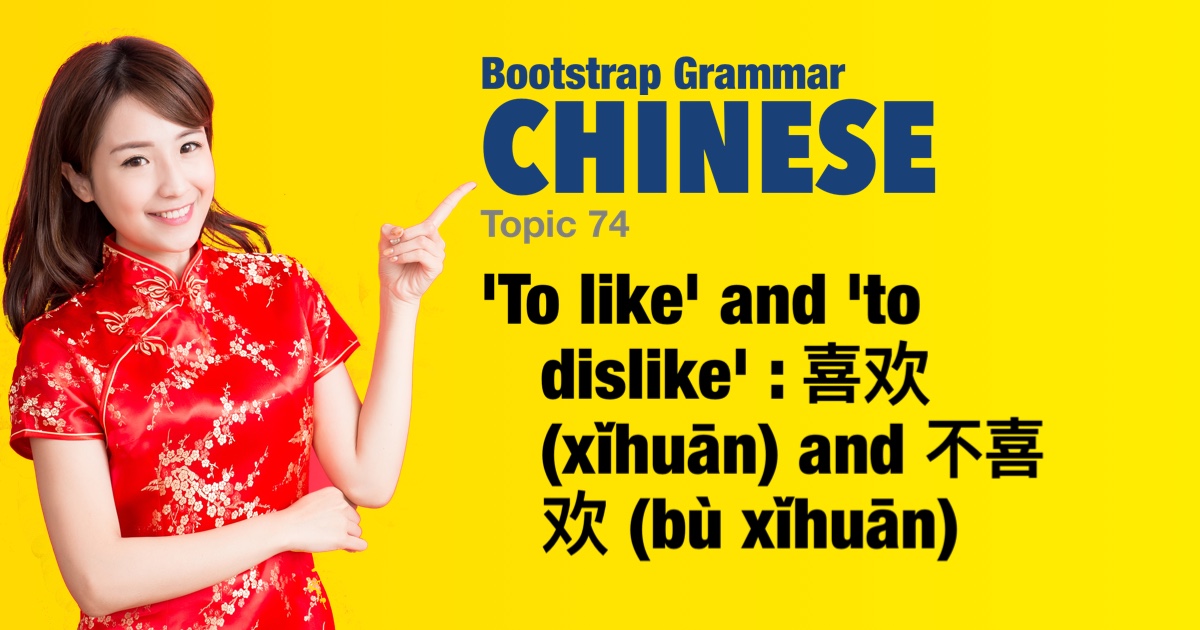Chinese grammar - 'To like' and 'to dislike' : 喜欢 (xǐhuān) and 不喜欢 (bù xǐhuān) |
|||
|
|||
To express like and dislike in Chinese, we use the verbs 喜欢 (xǐhuān) and 不喜欢 (bù xǐhuān). These both can take a direct noun or a verb. |
| Examples: | |
|
我喜欢米饭。
wǒ xǐhuān mǐfàn. I like rice. |
|
|
他不喜欢鸡蛋。
tā bù xǐhuān jīdàn. He doesn't like eggs.
|
|
|
他们喜欢澳大利亚。
tāmen xǐhuān Àodàlìyà. They like Australia. |
|
|
她喜欢去公园。
tā xǐhuān qù gōngyuán. She likes to go to the park. |
|
|
他喜欢鱼吗?
tā xǐhuān yú ma? Does he like fish?
|
|
|
你为什么喜欢她?
nǐ wèishénme xǐhuān tā? Why do you like her? |
|
|
我喜欢她因为她很好。
wǒ xǐhuān tā yīnwèi tā hěn hǎo. I like her because she is nice. |
|
|
我们不喜欢那部电影。
wǒmen bù xǐhuān nà bù diànyǐng. We do not like that movie.
|
|
|
他喜欢看电视。
tā xǐhuān kàn diànshì. He likes to watch TV. |
|
|
我喜欢和爷爷聊天。
wǒ xǐhuān hé yéye liáotiān. I like talking to my grandfather.
|
|
|
你喜欢做饭吗?
nǐ xǐhuān zuòfàn ma? Do you like cooking? |
|
|
他喜欢吃鱼吗?
tā xǐhuān chī yú ma? Does he like to eat fish? |
|
|
你们为什么不喜欢去海滩?
nǐmen wèishénme bù xǐhuān qù hǎitān? Why don't you (plural) like to go to the beach? |
|
|
因为我不喜欢米饭所以我吃面包。
yīnwèi wǒ bù xǐhuān mǐfàn suóyǐ wǒ chī miànbāo. Because I don't like rice, so I eat bread.
|
|
 |
|




